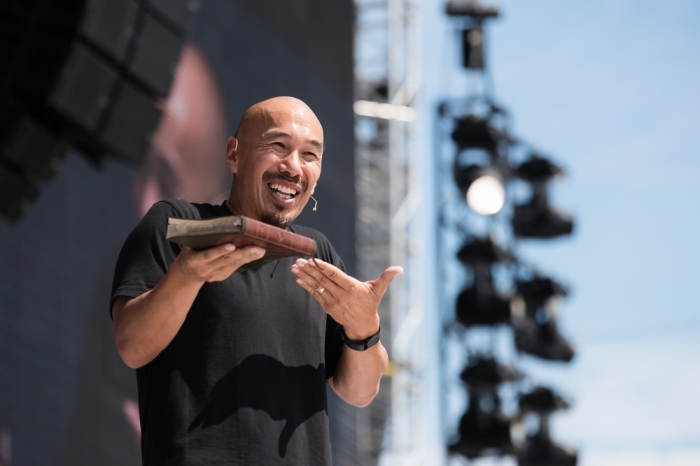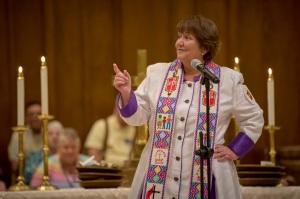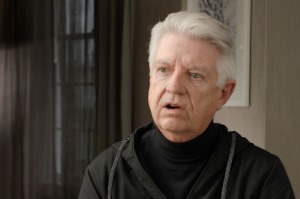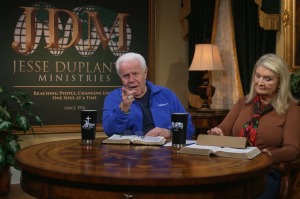Francis Chan: If all you had was Scripture, what would church look like?

Francis Chan is urging the rising generation to reengage the Scriptures about how church is done, stressing that the U.S. model has gotten many things wrong, even though motivated by good intentions.
In an Sept. 4 interview with Relevant podcast, the pastor spoke of what he has learned in the years since he decided to step down from his position at Cornerstone Community Church in Simi Valley, California and began a house church movement in the San Francisco Bay area called We Are Church.
"I got tired of hearing my own voice," Chan said, explaining why he stepped down, something he writes about at considerable length in his latest book, Letters To The Church.
"And I felt like people relied on my voice too much and they weren't getting in the Word for themselves, that they weren't seeking God on their own."
Yet because he did not give all of the reasons for why he left, people started making assumptions. Through several conversations with his elders and his own journey of poring over the Scripture about what the church ought to be, he came to the conclusion that he could no longer abide the status quo.
He tried to make some changes he thought were necessary but was unsuccessful, he explained. Compounding the struggle further was the success of his books Crazy Love and The Forgotten God and the proliferation of opinions on social media about what he should doing and be preaching.
"It was a confusing time. I just really didn't know what more I could do for the church," he said.
"And as my wife and I prayed. Both of us just really sensed there's something else."
He thought he would be positioned at this church for his entire life; he always respected other pastors who did so. But he continued to sense that the Lord had something new for him so he figured he had better obey that and move on.
In Letters To the Church, he addresses the credentialed, consumerist, and expensive economic model in which America does church.
"I would be going against Scripture to say that ministers can not be paid by the church," he told Relevant.
But in a lot of countries, that is not the way it is, he pointed out, and you must do what is best for the Gospel not what is best for yourself.
"Somehow you have millions and millions of believers in China, and it wasn't about all these paid clergy [where] that was their business. And even in the inner cities of America where most of those pastors are bi-vocational."
In San Francisco, one of the most expensive cities in the United States, none of the pastors in Chan's network of house churches are paid. They do not have a budget like most churches do; all the money they take in goes to the poor and other mission-related activities.
The American way has blinded Christians from staying focused on the advance of God's Kingdom, he writes in Letters to the Church.
Chan recounts in the book one particular occasion when he was speaking with a pastor from the Philippines who has over 30,000 people in his church. The pastor told him that they used to send missionaries to the United States for Bible training but that he would never make that mistake again.
"He explained that once these would-be missionaries spent time in the U.S., they never came back! Once they tasted the comforts, they came up with all sorts of reasons they were called to take a nice salary from a church and raise their children in America," Chan writes.
"Sometimes it takes an outsider to point out glaring issues we have become blind to. This pastor now trains missionaries in the Philippines, in an environment where there's no temptation to stay. It keeps them on mission. In the wild."
The comforts of American culture has often affected how decisions are made within churches, he laments.
"Too often we add in our own voices, thinking that if we just offer just the right services or package the gospel in just the right way so no one gets offended, we can convince people to stay. By catering our worship to the worshipers and not to the Object of our worship, I fear we have created human-centered churches," Chan explains in the book.
"I don't say this to condemn anyone or to point any fingers. I am guilty of it too. When I look back at my life and the times when I fell prey to the consumerist mentality, I don't believe that my intentions were evil or that my love for Christ was weak. God may say otherwise in the end, but I really believe my biggest mistake that I didn't think things through. Or that I didn't consult the right Person enough. I got caught up in the consumerism like everyone else, and I paid too much attention to what I wanted and what others wanted."
Chan told Relevant of his recent efforts in light of these realizations: "We're just trying to come up with a way of doing church and show people that it is possible. But I'm not saying it's the only way to do it."
When asked what he would tell the younger version of himself were he about to start a megachurch again, he replied he would pore over the Scriptures and then write on a blank sheet of paper what would please God the most, seek how He envisioned the church, and work on those things first.
When Chan was in his megachurch pastoral role, he functioned with the mindset that the first step was for him to prepare a sermon, then gather people to hear that sermon and find a place to host that, then find a band or someone to lead worship.
"So here's the steps, but did I get that from Scripture? Or did I get that from, well, this is what everyone does."
That list would look much different today, he concluded.




























